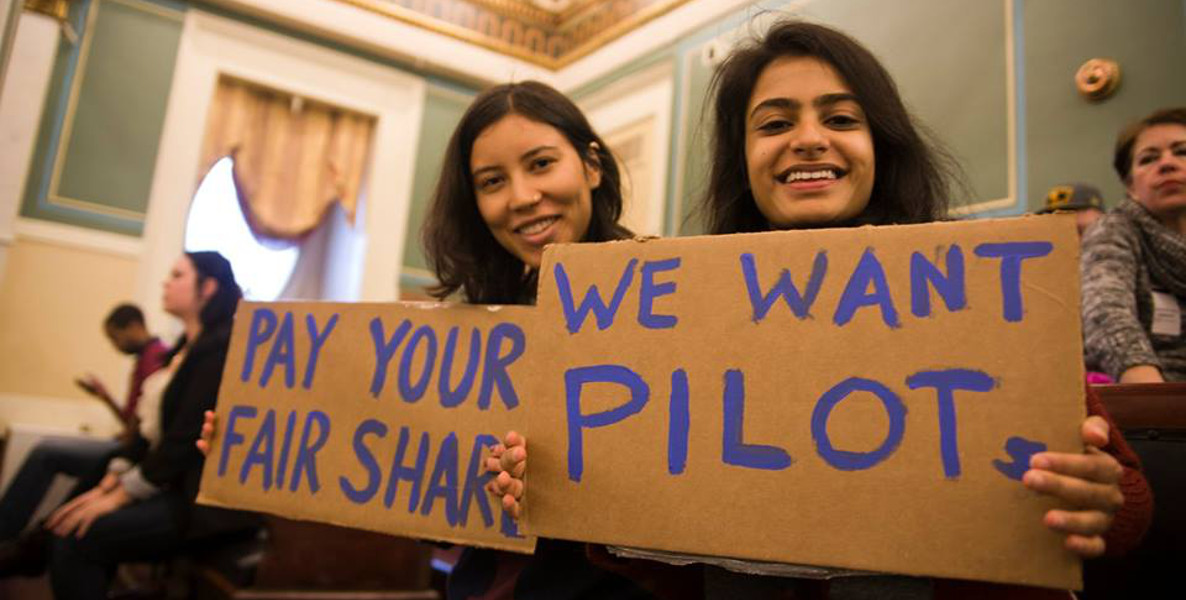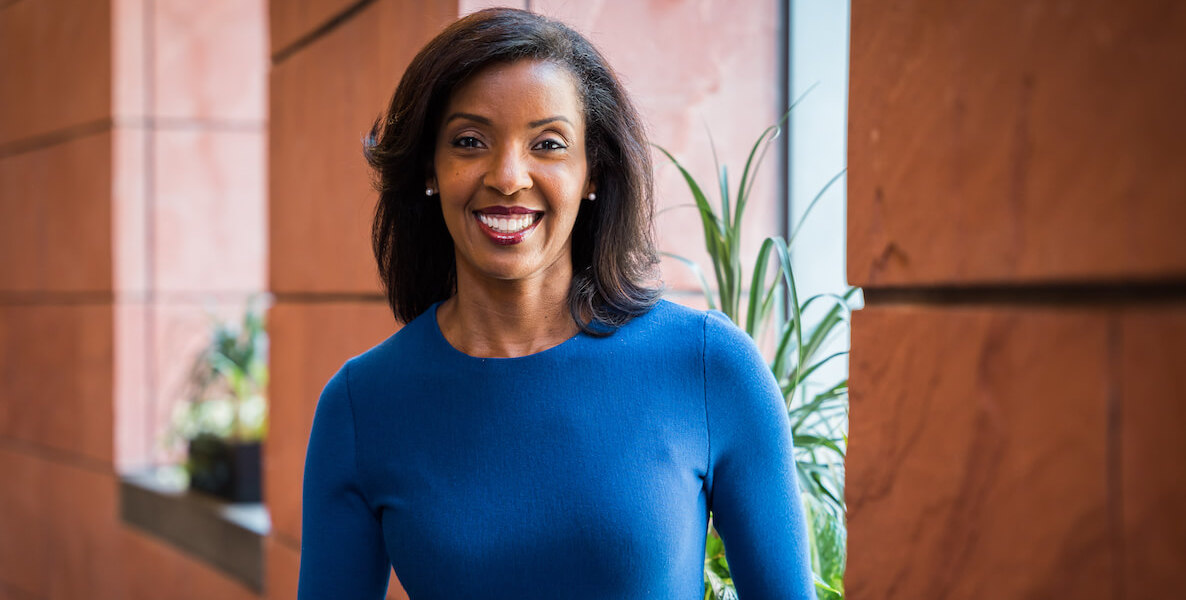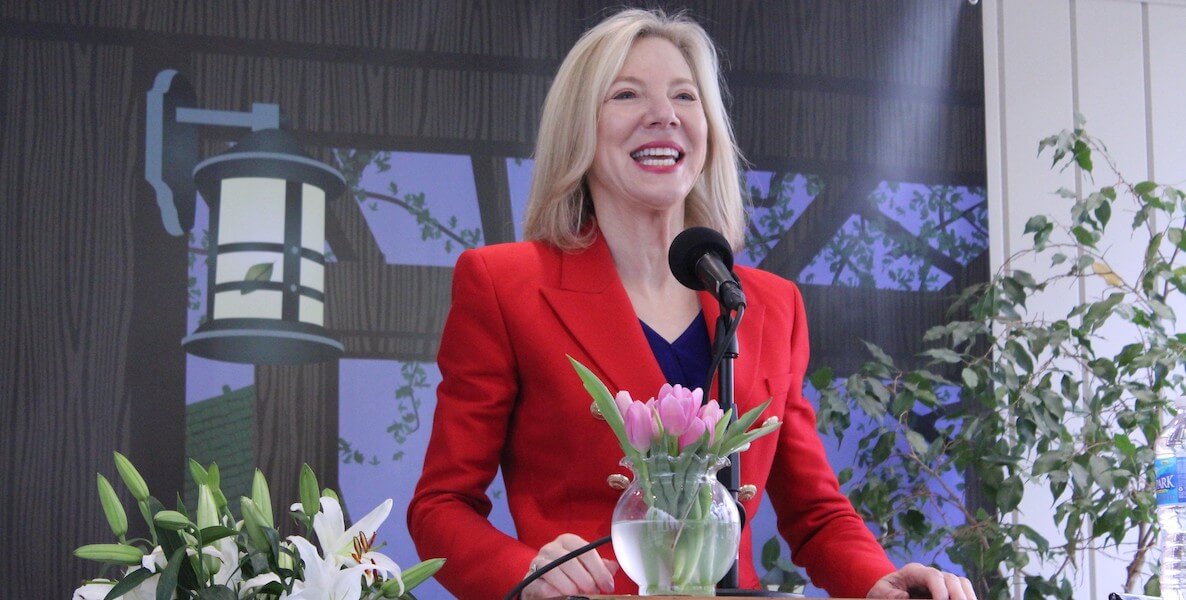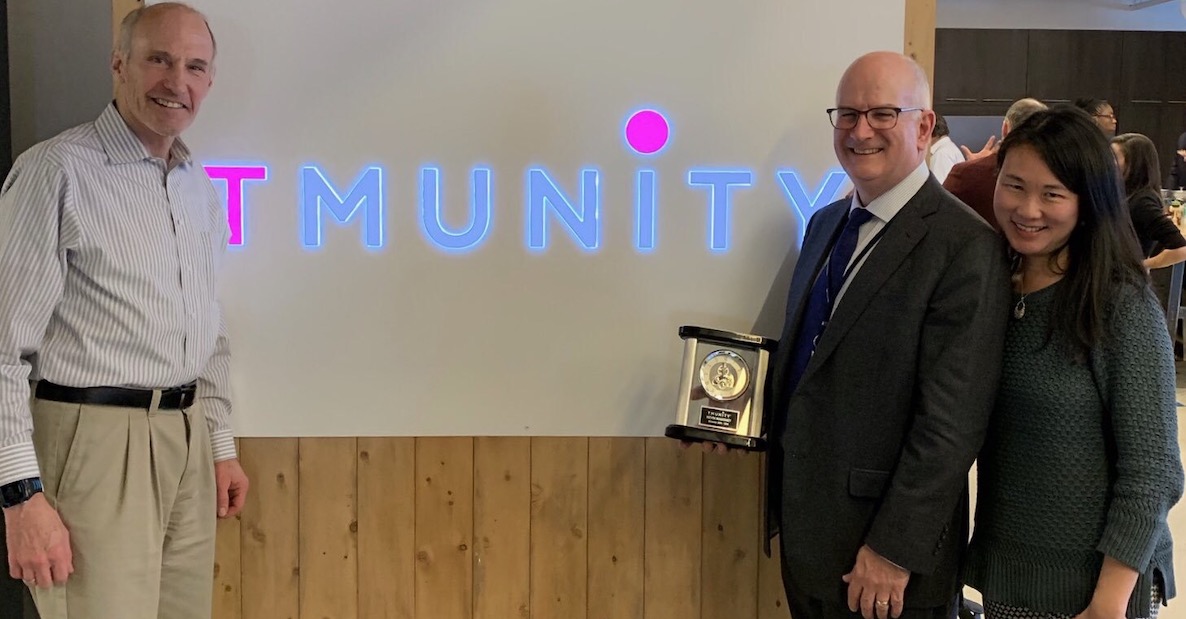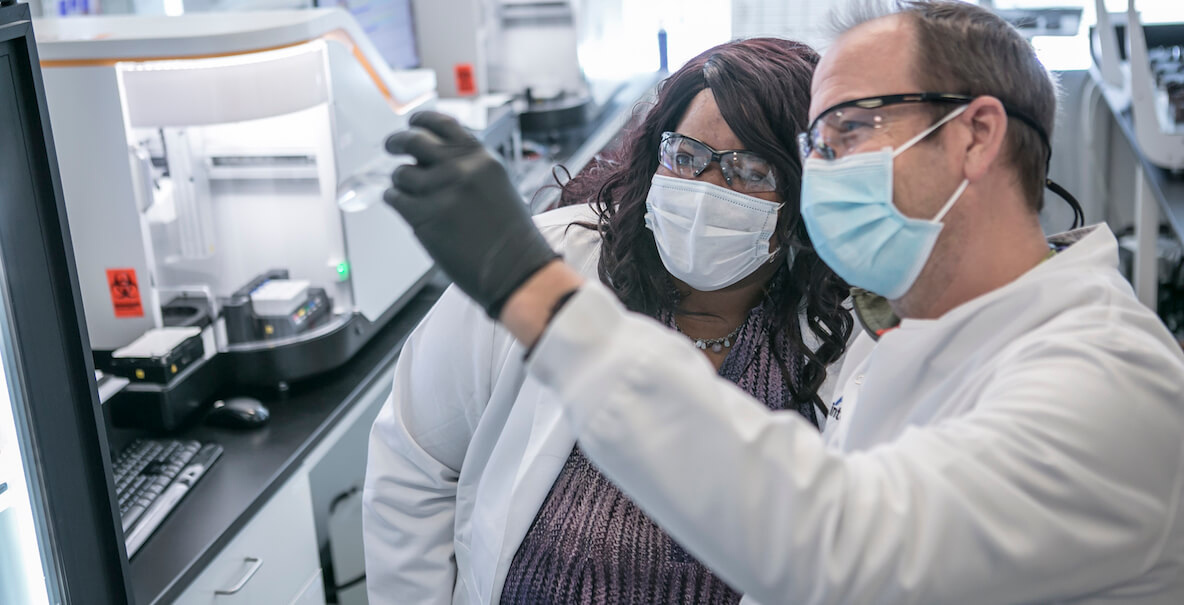The University of Pennsylvania’s pledge last fall to give $100 million to the School District of Philadelphia was a remarkable moment in the history of Philly-Penn relations—one worthy of the praise heaped on President Amy Gutmann, especially in contrast to other elite institutions around the country.
Let’s hope it’s just a start.
Penn has long come under pressure to contribute more to the well-being of the city around it. Like other not-for-profits nationwide, the university doesn’t pay property taxes. Instead, advocates have called for the university to pay PILOTS (payments in lieu of taxes), a nod to the school’s extensive real estate holdings and $14.65 billion endowment.
![]() It’s important to understand, however, the special significance of the $100 million Penn has pledged to invest over the next 10 years to remove lead, asbestos, and other toxins from the airways of Philadelphia public schools.
It’s important to understand, however, the special significance of the $100 million Penn has pledged to invest over the next 10 years to remove lead, asbestos, and other toxins from the airways of Philadelphia public schools.
My daughter has taught in Philadelphia public elementary schools for the last 25 years. I’m uplifted every time I visit her classroom by what can be accomplished by skilled teachers and enlightened principals even in the sparsest accommodations. But professional talent is not enough when there are toxins in the ventilation system.
Higher education is at a pivotal moment. The economic consequences of the pandemic have created a culture of fear at many universities and colleges. Because of its resources and prestige, Penn can and must be bold.
Over the next decade, President Gutmann’s gift will make it possible for thousands of students to study in a healthy environment and to have a real chance at quality education. Some might even become Penn students one day.
I say “President Gutmann’s gift” because she did not wait to persuade the Penn Board of Trustees to make the investment. Instead, she unilaterally drew on the president’s discretionary funds. And it’s not the first time Gutmann has stepped up.
For the last 24 years I have served as president or chief executive officer at three underfunded public universities: Governors State University in suburban Chicago, Arizona State University West Campus in Phoenix, and the University of Alaska-Anchorage. Keeping in touch with hometown Philadelphia news, I would see references to President Gutmann’s advocacy for public universities and the large numbers of racially and economically diverse students who attend.
Several years ago when the PASSHE schools (PA State System of Higher Education) were particularly under threat from a former governor, Amy Gutmann spoke out, saying that the University of Pennsylvania could not possibly educate all the leaders needed by a vibrant state and that it was essential for Pennsylvania to support these regional public universities. I hoped that President Gutmann’s statement might lead to a chorus from her elite presidential peers calling for funding for the public universities in their states.
It didn’t happen. I specifically reached out to staff members in the presidents’ offices at University of Chicago and Northwestern to advise them of President Gutmann’s statement and encourage something similar from their bosses. I was told that the presidents wanted to help Illinois public higher education in other ways. I’m still waiting.
Penn must invest more and show bold leadership
Let’s be clear. It’s important for the University of Pennsylvania to invest more money in Philadelphia. Higher education is at a pivotal moment. The economic consequences of the pandemic have created a culture of fear at many universities and colleges. Because of its resources and prestige, Penn can and must be bold.
In editorials and public statements, Penn scholars have immediately addressed the issue of the condition of U.S. democracy and the importance of education for its endurance. The University has reaffirmed its mission to diversity and inclusion. It’s now time to transform these commitments into further actions.
Here are some ways to do that:
Reserve more places at Penn for Philadelphia students
Many years ago, when I was a first-generation college applicant in my senior year at John Bartram High School, Penn awarded me a full-tuition scholarship. In those days the top student at every public Philadelphia high school was eligible for that generous award. My father had died when I was eight. When my mother died two weeks after my high school graduation, Penn added room and board to my support. Undergraduate and graduate professors then mentored me to complete a Penn PhD in English. The University took me in. Full disclosure—Penn changed my life, and I have always been deeply grateful.
Sadly, the full-tuition scholarship to the top student in every Philadelphia high school is a thing of the past. Penn must find other means to specifically and strategically communicate with Philadelphia public and parochial students, their counselors, and parents. For years I’ve done alumni interviewing for my alma mater, and this year I talked with students from West Philadelphia, West Catholic, and Central high schools. Those students seemed to understand that if they were admitted to Penn, the university would make it possible for them to attend debt-free.
Over the next decade, President Gutmann’s gift will make it possible for thousands of students to study in a healthy environment and to have a real chance at quality education. Some might even become Penn students one day.
But I wonder how broad-based and deep that understanding is. The scholarship and financial aid terrain is a complex new world for first-generation students and their families. Penn could do more to ensure all Philadelphia students know of the possibility of a Penn education that they can afford.
![]() Another resource for local students, could be Community College of Philadelphia, where the vast majority of minority and first-generation students begin their undergraduate study. Like at other community colleges, CCP graduates struggle to attain four year degrees; the national average is 13 percent.
Another resource for local students, could be Community College of Philadelphia, where the vast majority of minority and first-generation students begin their undergraduate study. Like at other community colleges, CCP graduates struggle to attain four year degrees; the national average is 13 percent.
Penn could help by working with CCP to assist students in completing Associate Degrees at the community college, preparing for a selected Penn major, and then transferring to Penn for the junior and senior years. Students following this pathway would be informed about the scholarships available so that they could graduate debt-free. This partnership would help fulfill Penn’s commitment to diversity, and send a message to other universities about the quality of community college education. Cooperative programs with universities encourage community college students to undertake a coherent, full-time program of study. Community colleges can do an excellent job if students stay put and refrain from the “swirling” from campus to campus and year to year typical of part-time community college study.
Continue and improve partnerships with Philadelphia schools
Through Penn’s Graduate School of Education (GSE), the University has invested in special partnerships with two schools: Henry C. Lea School at 47th and Locust and the Penn Alexander School at 42nd and Spruce. The Lea school partnership goes back to the 1960’s. The Penn Alexander connection was established at the turn of the millennium. In 2021, Lea is under-enrolled, while Penn Alexander conducts a lottery to select among the throngs of interested students. An important factor in the popularity of Penn Alexander is Penn’s $1,300 per student contribution to the school’s operating expenses, resulting in low student-teacher ratios (20:1 for kindergarten and 24:1 for grades 1-8).
The attraction of a Penn Alexander education has led to sky-rocketing property values in the catchment. The gentrification of this part of West Philadelphia has, in fact, compromised the goal of providing a quality K-8 education for diverse low-income students. It may be time for major rethinking. Should the $1,300 per student investment be made both at Lea and Penn Alexander? Should Lea be K-4 and Penn Alexander 5-8? I suggest that Penn researchers from a variety of disciplines study the problem and make recommendations.
Prepare better teachers for this moment
Civic education has never been more important. The U.S. Congress currently is considering multiple bills on the subject. Teams of educators are searching for ways to implement the Obama administration report (2012), “A Crucible ![]() Moment,” arguing for the urgency of citizenship education across the curriculum. The GSE is poised for leadership in this movement. Think of the difference it would make if every pre-service and in-service teacher educated at Penn focused on democracy engagement. Teachers from grade school to grad school could work out ways to promote understanding of the Constitution and the Supreme Court decisions that have interpreted it, the three branches of government, the importance of a free press, and so much more.
Moment,” arguing for the urgency of citizenship education across the curriculum. The GSE is poised for leadership in this movement. Think of the difference it would make if every pre-service and in-service teacher educated at Penn focused on democracy engagement. Teachers from grade school to grad school could work out ways to promote understanding of the Constitution and the Supreme Court decisions that have interpreted it, the three branches of government, the importance of a free press, and so much more.
Leadership in preparing teachers for civic education would be a concrete enactment of President Gutmann’s description of the Penn Compact 2022: “Engagement with communities here at home, across our country, and throughout our world—civic engagement, for short—is at the heart of the Penn Compact 2022.”
The University of Pennsylvania has the reputation and capacity to be a solutions-based university. Its motto is Leges sine moribus vanae— “Laws without morals are useless.” Penn can transform property-tax exemption into transformative philanthropic contributions. The university can address social justice issues in the city and beyond. And Penn can set an example for other universities and colleges to do the right thing at this time of societal and educational upheaval.
RELATED VIDEO CONTENT
Elaine Maimon, PhD, has served for 24 years as chief executive officer at three public universities. She is the author of Leading Academic Change: Vision, Strategy, Transformation.
Photo courtesy Kelly Writers House / Flickr


